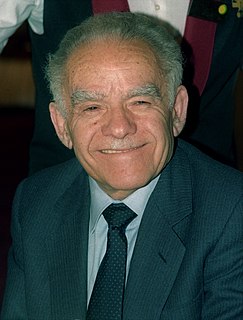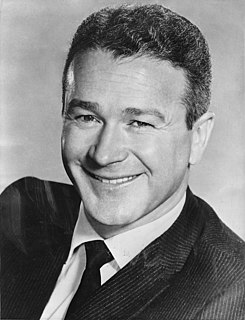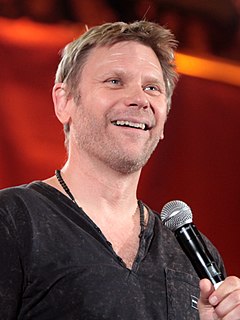A Quote by Malcolm Gladwell
That term, 'David and Goliath,' has entered our language as a metaphor for improbable victories by some weak party over someone far stronger.
Related Quotes
Israel is very confusing because it seems to be a Goliath, and in some ways it is, when you look at the tanks versus the Palestinian boy. But deep down, when you look at the big map and the big picture and the big history, we are really a David. We are a David with some megalomaniac ideas who thinks he's huge. But we're not. At the end of the day, Jews as a people are an endangered species. One cannot overlook this dimension.
In my opinion, Hollywood doesn't know the context. Hollywood sees a David and Goliath story with Israel being cast in the role of Goliath, as the evil aggressor. The Palestinians are simply innocent reactors to whatever Israelis are throwing at them. And everything - like their economic situation - excuses the savagery.
Moreover, metaphor is typically viewed as characteristic of language alone, a matter of words rather than thought or action. For this reason, most people think they can get along perfectly well without metaphor. We have found, on the contrary, that metaphor is pervasive in everyday life, not just in language but in thought and action. Our ordinary conceptual system, in terms of which we both think and act, is fundamentally metaphorical in nature.
The prevailing move in American society to a permanent war status does more than promote a set of unifying symbols that embrace a survival of the fittest ethic, promoting conformity over dissent, the strong over the weak, and fear over responsibility, it also gives rise to what David Graeber has called a "language of command" in which violence becomes the most important element of power and mediating force in shaping social relationships.
Metaphor isn't just a fancy turn of speech. It shapes our thoughts and feelings, reaches out to grasp new experience, and even binds our five disparate senses. James Geary's fascinating and utterly readable I is an Other brings the news on metaphor from literature and economics, from neuroscience and politics, illuminating topics from consumer behavior to autism spectrum disorders to the evolution of language. As a writer, as a teacher, and as someone just plain fascinated by how our minds work, I've been waiting years for exactly this book.



































